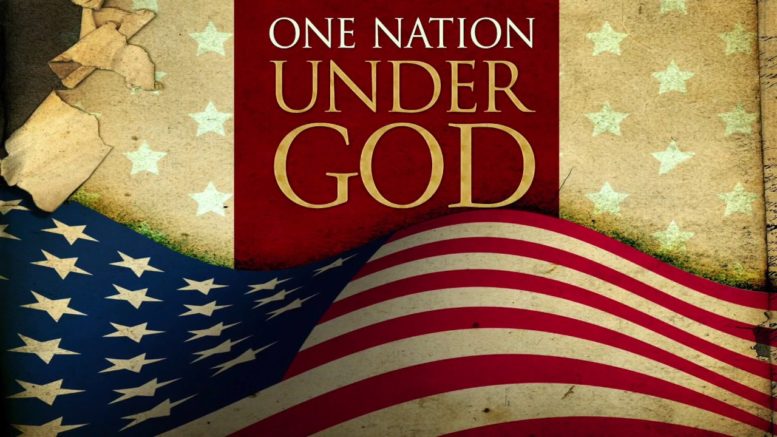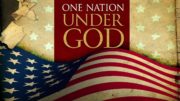The next two articles concern the principles of charity and stewardship. I’d originally planned on presenting charity first, but with recent events I think it better to begin with stewardship. We’ll see the order really doesn’t matter. They are two sides of the same coin.
Before we begin, we need to define several related terms. These include; ownership, dominion, and stewardship. Ownership concerns having the legitimate right to possess something. Dominion is simply rightful authority over something one possesses. Dominion originates from ownership. You own something; therefore, you have dominion over it. This brings us to stewardship. Stewardship is the responsibility one has to care for something another has entrusted to their care. Stewardship is the duty owed an owner who’s delegated their authority.
We’re going to take a quick look at ownership versus stewardship—using creation. Then proceed to a few implications for us as individuals and a society.
In the Beginning
This topic takes us back to the very first Biblical principle.[1]
Society recognizes who God is, His sovereignty and authority.
God’s sovereignty comes from His rightful ownership. He created everything ever created. (Gen. 2:1-2 and Psalm 24:1-2) God’s act of creating gives Him rightful ownership. Therefore, God also has dominion over all creation. He gave dominion over the things of the earth to man. (Gen. 1:29-30) By God granting man His lawful dominion over the earth, man incurred the moral duty of stewardship. God didn’t transfer His ownership to man, but rather His authority to use these things for man’s benefit. It is a display of God’s love for us.
We can see this in three passages. First, the land is not to be permanently sold, because it still belongs to God. (Lev. 25:23). Second, man is to care for what God entrusted to him (Gen. 2:15). Finally, God’s granting dominion to man is right, based on man bearing God’s image. (Hebrews 2:6-8)
There is yet another way we can look at this. Man has a natural right to keep the fruit of his labor. (1 Cor. 3:7-9 and Ecc. 5:18-20) If man has the right to keep the fruit of his labor, then doesn’t God have the right to keep the fruit of His labor? Why would it be different? I think by granting man dominion, God is teaching us a lesson about charity. This is a subject we’ll pick up next time.
We’ll close this section with the next Biblical principle.
Man’s dominion of God’s creation comes with the moral duty of stewardship.
All natural rights come with a corresponding moral duty. A duty incurred out of love—grace.
An Implication for Individuals
Man is finite, meaning we don’t live forever. Man’s dominion over creation is temporary; only lasting until God returns or revokes it. To continue exercising dominion until He returns, and thereby fulfill our stewardship duty, we must have children. We therefore have a natural right to procreate. This right comes with the moral duty to provide. This duty relates first to our family (1 Tim. 5:8), but also extends to all of humanity as we are all made in God’s image (1 John 3:17-8)
When God returns, He will expect each of us to show how good a steward we’ve been over what He’s entrusted to us. This is Christ’s parable of the talents. (Matt. 25:14-33) Each of us has different skills and abilities—in a word, gifts. We are not all alike. Why should we expect the same outcome? No gifts are greater than others, the only difference is in how well we use them. To think differently is wrong.
We are responsible for how we use God’s gifts. Do our actions bear fruit increasing the harvest, or do we bury and hoard them instead? This doesn’t mean we are to give everything away and live in poverty either. (Ecc. 2:24-5) Instead we are to help others as we can, while everyone provides for themselves as best they can. It’s not about what we have, but how we use it.
So what are some things we can do?
- Surround ourselves with good people.
- Act as God’s ambassador rather than a worldly citizen.
- Sow good seed through our words and actions, so God’s harvest will be great.
- Learn and do what God’s commands.
Societal Implications
This article’s principle also applies to society, for we are called as individuals and a people. God created the spheres of governance and religion. (Ex. 18:13 and 28:1) God’s act of creation gives Him lawful authority to rule, that is sovereignty. He granted man dominion over two specific powers within God’s people. The first to govern, the second religion. This dominion came with the moral duty of stewardship. Those in leadership positions are only exercising God’s authority—until He returns. God will judge them for their words and action’s fruit.
There are only two forms of governance and religion. One exercises rightful authority; the second does not. The first recognizes God’s image we each carry and follows His teaching; the second do not. The first uses our dominion over the material in fulfilling the spiritual; the second looks to the material alone. This second has many names, because it fails each time it is tried. So you can call it communism, fascism, humanism, liberalism, progressivism, rationalism, socialism, etc. It doesn’t matter. The same deceptions underly each label, and we know where those come from. Satan. Only man devises ways to make the simple more complicated. Why?
Governance and Religion
We see man rejecting God’s governance in 1 Sam. 8. Governance concerns justice, receiving what one is due from their actions. Justice attempts to recognize our equality of nature and restore that equality when it’s been violated. In this way it protects our natural rights. Judgement is to be fair and impartial. Moses was Israel’s first judge.
Religion concerns our relationship with God—learning how to walk with Him. Adam and Eve forsook their relationship in Gen. 3. Christ is the second Adam, and His resurrection restores our original relationship—if we choose to pick it up. Christ paid the price for our sins, but only if we claim Him as Savior. Aaron was Israel’s first high priest..
We are to select our leaders. But when they no longer act as God’s stewards, we are left with a choice. Do we follow God or man? Those serving as leaders only retain dominion so long as they apply moral stewardship. A leaders dominion is not theirs by right, but rather by God granting it to man in His absence. All morality comes from God. He says we are to know and do what is good out of love. (Isa. 5:20-3) When man directs us to do what is wrong, we must stand and do what is good—we must follow God. (Acts 5:29)
So what do we own? We own the things we speak and act into creation. Those things we create from our work, and develop through our relationship with others. All carried out in God’s love. Our choices reflect our stewardship. For what do we choose to stand? As for me and my house, we will serve the Lord.
Footnote:
[1] Wolf, Dan, Rights, Virginia Christian Alliance, Feb. 28, 2021, https://vachristian.org/rights/, and
Wolf, Dan, Man’s Purpose, Virginia Christian Alliance, Feb. 22, 2021, https://vachristian.org/mans-purpose/.



